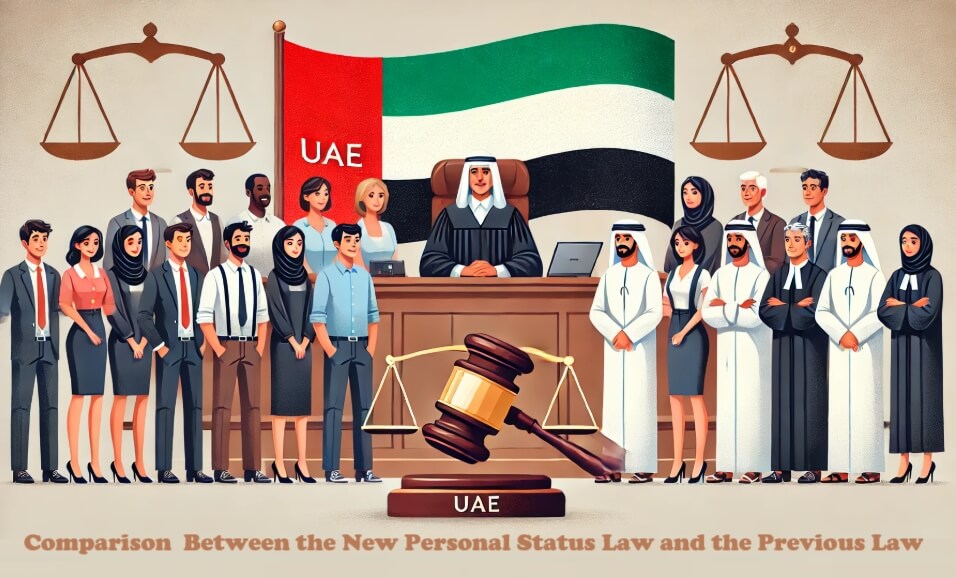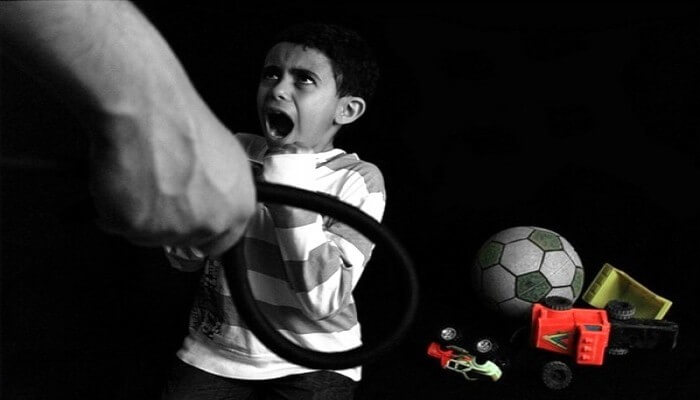Legal blog
Comparison Between the New Personal Status Law and the Previous Law

In this analytical comparison, we compare the new Personal Status Law in the United Arab Emirates, issued by Federal Decree-Law No. (41) of 2024, to the previous law, Federal Law No. (28) of 2005. This study aims to clarify the aspects of development and amendment in the new legislation, while highlighting the most important fundamental differences and their impact on family relations, according to the official legal texts.
First: Legislative Scope and Applicability of the Law
Federal Decree-Law No. (41) of 2024 specified in its first article the scope of application, as it expanded from the categories subject to its provisions to include Muslim and non-Muslim citizens of the United Arab Emirates, as well as foreigners who do not adhere to the application of their personal law or there is no text in force for them in the country, while the previous law No. (28) of 2005 was mostly limited to Muslims only, with some exceptions. The new law confirmed the retroactivity of its application to cases of proof or denial of paternity, and divorce cases in which no final judgment has been issued.
Second: Marriage Provisions – Eligibility, Elements, Conditions
The new law made important amendments to the conditions of marriage, including setting the age of eligibility at 18 Gregorian years, with the possibility of marriage without the permission of the court, which is stated in Article (19). As for the previous law, it adopted the lunar age in calculating eligibility and granted the guardian wider powers. The new law also regulated the issue of marriage of those who are mentally or financially incapable under conditions that take into account the interest, and expanded the scope of conditions that may be included in the marriage contract.
Third: Divorce, Khul 'and Dissolution
The new law was characterized by a precise regulation of the types of divorce, as it stipulated in Article (53) to divide it into explicit and euphemistic, and clarified the cases of non-divorce in Article (56), such as the case of extreme anger or commenting on a condition. The law also regulated Khul 'more clearly, and required it to be documented within 15 days (Article 68).With regard to annulment, Articles (69) to (80) have expanded in regulating the causes of annulment, including illness, damage, lack of spending, absence, imprisonment, and addiction.
Fourth: Custody and Alimony
In a remarkable development, the new law, in Article (112), granted the custodial mother educational guardianship, which was not stipulated in the previous law, noting that it is an exception to the principle stated in the second clause of the same article.
Also added in Article (122) the option of the ward if he has completed (15) fifteen years of age, so he has the choice of residing with one of his parents, unless the interest of the ward requires otherwise.
He also carefully separated the types of alimony (marital, waiting period, children, parents) in articles (95) to (111), and determined the criteria for estimating, increasing, and decreasing alimony according to the economic situation and the period.
Fifth: Descent and Provisions of Proof
The new law focused on modern evidential tools in matters of descent, and introduced the possibility of using DNA testing in Articles (90) and(94) as an exceptional means of proof in the event of conflict or disasters, which represents a qualitative leap compared to the previous law, which was limited to acknowledgment and testimony. It also established strict controls over pubes and the denial of descent.
Concluding Observations
The new law is comprehensive and detailed, and may adopt a flexible and practical approach that accommodates the diversity of society in the UAE.
The expansion of the new law in its scope of application represents a qualitative shift in the concept of personal status in the UAE, as it merged categories that were excluded or not explicitly stipulated in the previous law.
This reflects a comprehensive legislative orientation towards Emirati family planning with all its diverse components, while maintaining Islamic principles as a basic reference when the text is absent.
Another important development is that the new law regulated the marriage of minors in a more restrictive perspective, as it required the permission of the court after it verified the interest and submitted medical and social reports, while the previous law left more discretionary space for the guardian.
The new law also recognized that women must consent to marriage and not be forced to marry, which reinforces the principle of consent and justice.
It is also noted that the articles on dislocation and dissolution have been expanded to include precise details about the effects of each type of band, which facilitates the work of judges and reduces personal estimates.
New cases, such as addiction, were also included as grounds for dissolution, which was not explicitly provided for in the previous law.
The new law dealt with some issues related to the estimation of alimony, which were not found in the previous law, such as the lack of clarity of the limits of past and ongoing alimony, and clearly stipulated that the provisions shall apply retroactively in some cases.
He also added new mechanisms for distributing parental support to children, reflecting a social development in the distribution of responsibilities within the family.
The adoption of DNA testing in proving or denying descent is also a fundamental development that confirms the UAE legislator's orientation towards adopting modern science and employing it in a way that serves justice, while maintaining Sharia controls for cases of blasphemy and recognition.
In conclusion, the new law reflects a balance between jurisprudence and modern social reality, and is an advanced tool for controlling family relations, which will have a very good impact and return on various communities of citizens and residents.
Written by:
Mahmoud Basha | Resolutions FZC LLC

This publication is for general information purposes only. It does not purport to provide comprehensive full legal or other advice.
Legal Advice Middle East and the contributors accept no responsibility for losses that may arise from reliance upon information contained in this publication. This publication is intended to give an indication of legal issues upon which you may need advice.
Full legal advice should be taken in due course from a qualified professional when dealing with specific situations.







